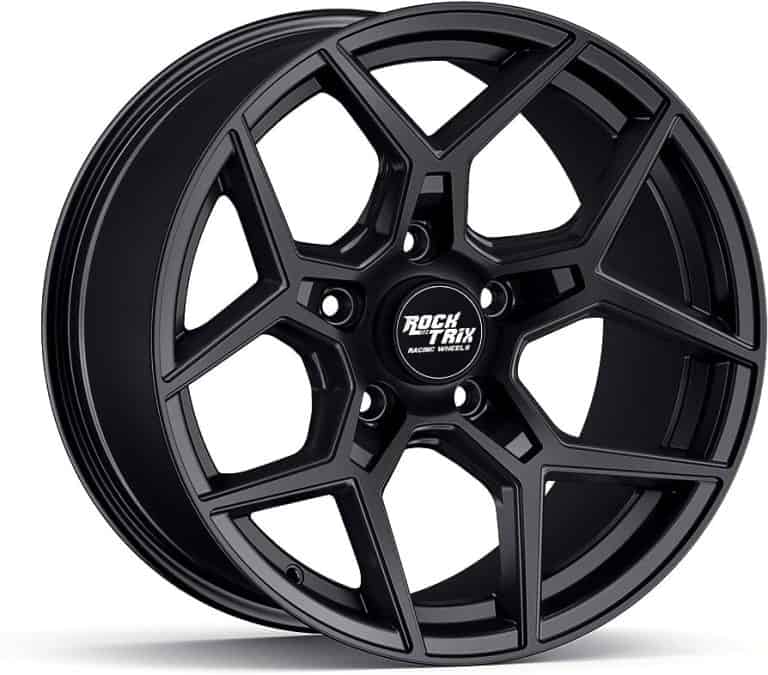Jeep 3.7 Engine Problems : Troubleshooting Tips for Jeep Owners
The jeep 3.7 engine commonly experiences problems with oil leaks and engine noise. This engine has been known to have issues with the timing chain tensioner and valve seats, leading to performance issues and potential engine failure.
The jeep 3. 7 engine was first introduced in 2002 as one of the first engines in chrysler’s powertech engine family. While it was praised for its power output and fuel efficiency, it has since been plagued by numerous problems.
One common issue found in this engine is the buildup of sludge, which can cause oil leaks and engine noise. This engine also has a history of problems with the timing chain tensioner and valve seats, which can lead to significant performance issues and even engine failure. However, with regular maintenance and prompt repairs, many of these problems can be avoided.

Credit: www.amazon.com
Understanding The Jeep 3.7 Engine
The jeep 3. 7 engine is a popular engine produced by chrysler from 2002 to 2012. It is a v6 engine, mostly used in the jeep liberty and dodge nitro suvs. If you have this engine in your vehicle, it’s important to know what issues can arise and how to fix them.
Brief Background On The Jeep 3.7 Engine
The jeep 3. 7 engine was created to fill the gap between the smaller 2. 5-liter engine and the larger 4. 0-liter engine. It was designed to be a cost-effective option that could still provide decent power, making it a popular choice for the jeep liberty and dodge nitro.
Common Problems Faced By Jeep 3.7 Engine Owners
As with any engine, the jeep 3. 7 can develop problems over time. Here are some of the most common issues faced by jeep 3. 7 engine owners:
- Overheating: One of the most common issues with this engine is overheating. This can be caused by a variety of factors, such as a faulty thermostat, a cooling system leak, or a malfunctioning fan.
- Oil leaks: Another common problem is oil leaks. These can occur due to a faulty valve cover gasket, a damaged oil pan, or a failing rear main seal.
- Rough idle: If you notice your engine is idling rough, it could be due to a vacuum leak, a dirty throttle body, or a malfunctioning fuel injector.
- Misfires: Misfires can occur for several reasons, including a faulty spark plug, a damaged ignition coil, or a clogged fuel injector.
- Timing chain issues: The timing chain on the jeep 3.7 engine can wear out over time, causing engine performance issues and potentially catastrophic engine failure.
If you experience any of these problems with your jeep 3. 7 engine, it’s important to address them as soon as possible to prevent further damage. Regular maintenance, such as oil changes and tune-ups, can also help prolong the life of your engine.
Remember, understanding the common issues with your jeep 3. 7 engine can help you identify and address problems early on, potentially saving you time and money on repairs.
Identifying Jeep 3.7 Engine Problems
Jeep is a well-known american brand that has been producing high-quality and durable vehicles for decades. However, even the most reliable engines can experience problems or breakdowns over time, and the jeep 3. 7 engine is no exception. In this post, we will focus on identifying jeep 3.
7 engine problems and discuss the common symptoms that indicate an issue. We’ll also touch on why regular engine maintenance and inspections are crucial to keep your jeep running smoothly.
Common Symptoms That Indicate An Issue
Recognizing the signs of potential engine problems can save you from expensive repairs down the line. Some of the most common symptoms that indicate a problem with your jeep 3. 7 engine include:
- Rough idling or stalling
- Loss of power or acceleration
- Reduced fuel efficiency
- Oil leaks and burning smells
- Engine knocking or tapping noises
- Overheating or smoking from the engine
If you experience any of these symptoms, it’s best to take your jeep to a trusted mechanic as soon as possible. Prompt action can prevent further damage to the engine and help you avoid costly repair bills.
Importance Of Regular Engine Maintenance And Inspections
Regular engine maintenance and inspections are crucial for identifying and addressing potential issues before they become major problems. Some crucial engine maintenance tasks that should be performed include:
- Regular oil changes to keep the engine lubricated and prevent dirt and debris buildup
- Changing the air filter to improve airflow and prevent dust and dirt from entering the engine
- Spark plug replacement to maintain good combustion and prevent misfires
- Cooling system inspection to ensure proper temperature regulation and prevent overheating
- Timing belt replacement at recommended intervals to prevent engine damage
By keeping up with regular maintenance and inspections, you can prevent many common jeep 3. 7 engine problems.
The jeep 3. 7 engine is known for its durability and performance, but it’s important to be aware of potential problems and address them early. Regular engine maintenance and inspections are crucial to keep your jeep running smoothly, and recognizing common symptoms of engine problems can help you avoid costly repairs.
By taking good care of your jeep’s engine, you can enjoy many years of safe and trouble-free driving.
Diy Troubleshooting Tips
Jeep enthusiasts have long touted the 3. 7l v6 engine as a reliable powerhouse capable of handling rough terrain with ease. However, like any engine, the 3. 7 has its share of problems. In this blog post, we will explore some common jeep 3.
7 engine problems and provide some diy troubleshooting tips for jeep owners who want to handle their engine issues themselves.
Check Engine Light Diagnosis And Interpretation
The check engine light is the most common method an engine has for communicating that something is wrong. When it illuminates, it’s a signal that there is a problem that requires attention. Here are some tips for diagnosing and interpreting the check engine light:
- Use an obd-ii scanner to connect to your vehicle’s on-board diagnostics system and read any diagnostic trouble codes (dtcs) that may be present.
- Research what the dtcs mean to identify the specific problem in the engine. You can find this information online or refer to your vehicle’s owner manual.
- In some cases, a check engine light may simply indicate a loose gas cap. Before you panic, check the cap to make sure it’s secure.
Basic Troubleshooting Measures For Common Issues
While the jeep 3. 7 engine is a reliable choice, some issues may arise that require troubleshooting. Here are some basic tips for addressing common issues with this engine:
- Check the engine oil level and oil pressure. Low oil levels or pressure can cause lifter and valve noises or even engine failure.
- Inspect the spark plugs and ignition coils for spark issues. Misfires in the engine can result in a rough idle and hesitation when accelerating.
- Look for signs of a clogged fuel filter. Lack of power and hesitation can result from a blocked filter.
- Check the battery voltage and cables for corrosion. A battery with a low charge or bad connections can result in a non-start or poor performance.
Essential Tools Needed For Diy Engine Troubleshooting
If you are considering diy troubleshooting your jeep 3. 7 engine problems, you should ensure that you have essential tools on hand. Some of the items you’ll need to make troubleshooting easier include:
- An obd-ii scanner for reading diagnostic trouble codes.
- A multimeter for testing circuits and voltage.
- A compression tester for measuring engine compression.
- A timing light for testing ignition timing.
- Basic hand tools like wrenches, sockets and pliers.
Understanding common jeep 3. 7 engine problems and how to troubleshoot them can save you time and money. By following these diy troubleshooting tips for identifying the root cause of engine issues, you can quickly get your jeep back on the road.
Remember to always use caution, and if necessary, consult with a professional mechanic.
Professional Troubleshooting And Repair Options
Jeep 3.7 Engine Problems: Professional Troubleshooting And Repair Options
If you own a jeep with a 3. 7 engine, you may encounter problems such as engine stalling, oil leaks, or noisy valve lifters. While some issues are minor, others require professional help. Here’s what you need to know about addressing jeep 3.
7 engine problems.
When To Seek Professional Help For Jeep 3.7 Engine Problems
If you’re experiencing any of the following issues, it may be time to consult a professional mechanic:
- Engine misfires or stalls
- Loud grinding or ticking sounds
- Oil leaks and low oil pressure
- Decreased acceleration or power
- Overheating or engine warning lights
Selecting A Reputable Mechanic Or Repair Shop
Before leaving your jeep at a repair shop or mechanic, consider these factors:
- Reputation: Look for reviews on reputable websites and ask for recommendations from other jeep owners.
- Expertise: Ensure the mechanic has experience with jeeps and possesses relevant certifications.
- Communication: Select a mechanic who listens to your concerns and provides clear explanations about the issues and potential repairs.
- Warranty: Check if the mechanic or repair shop offers a warranty on their services and parts used.
Cost Considerations And Budgeting For Repairs
Jeep 3. 7 engine problems can be costly to fix, so it’s important to budget appropriately and consider your options:
- Diagnostic costs: Some mechanics charge a fee to diagnose the issues with your jeep. This can range from $50 to $200 depending on the repair shop.
- Repair costs: The amount of money needed to fix jeep 3.7 engine problems varies from the type of issues with your jeep, the mechanic’s advice, and the cost of replacement parts.
- Used engine: In some cases, the cost of repairing an engine may be equal to or more than the jeep’s value. In these circumstances, purchasing a used engine with fewer miles can sometimes be a cost-effective alternative.
- Extended warranty: If you have an extended warranty for your jeep, it may cover some or all of the costs associated with engine repairs. Contact your warranty provider to find out if you’re eligible for coverage.
Jeep 3. 7 engine problems can vary widely in severity and can be expensive to address. When facing these issues, it’s important to consider seeking professional help and selecting a reputable mechanic or repair shop. Be sure to budget appropriately and consider alternative options such as purchasing a used engine or utilizing an extended warranty for repairs.
Frequently Asked Questions For Jeep 3.7 Engine Problems
What Are The Common Jeep 3.7 Engine Problems?
Common problems with the jeep 3. 7 engine include overheating, misfires, and oil consumption.
What Causes The Overheating Of The Jeep 3.7 Engine?
The jeep 3. 7 engine is prone to overheating due to radiator fan failure, thermostat issues or water pump failure.
Do All Jeep 3.7 Engines Suffer From Misfires?
Not all jeep 3. 7 engines suffer from misfires, but if they occur, it could be due to a faulty spark plug, ignition coil, or fuel injector.
How Can Jeep 3.7 Engine Oil Consumption Be Reduced?
Jeep 3. 7 engine oil consumption can be reduced by using the correct viscosity oil, fixing leaks, and replacing worn-out components like piston rings and valve seals.
Is The Jeep 3.7 Engine Worth The Investment Despite The Problems?
It depends on your needs. If you are willing to invest in repairs and maintenance, the jeep 3. 7 engine is a reliable and powerful option. However, if you are looking for a low-maintenance option, it may not be the best choice.
Conclusion
The jeep 3. 7 engine problems can be overwhelming for jeep owners. The engine’s tendency to overheat and consume excessive amounts of oil can lead to serious and costly damages. However, regular maintenance and timely inspection can help prevent these problems from arising.
Keeping the engine clean and monitoring oil levels can go a long way in ensuring the engine’s longevity. In addition, seeking professional assistance at anytime is important, especially when strange noises or warning lights appear. The jeep 3. 7 engine is a powerful machine that can withstand rugged terrain and harsh conditions, but like any engine, it requires care and attention to function correctly.
By being aware of the common engine problems and practicing proper maintenance habits, jeep owners can enjoy years of trouble-free driving on the open road.





